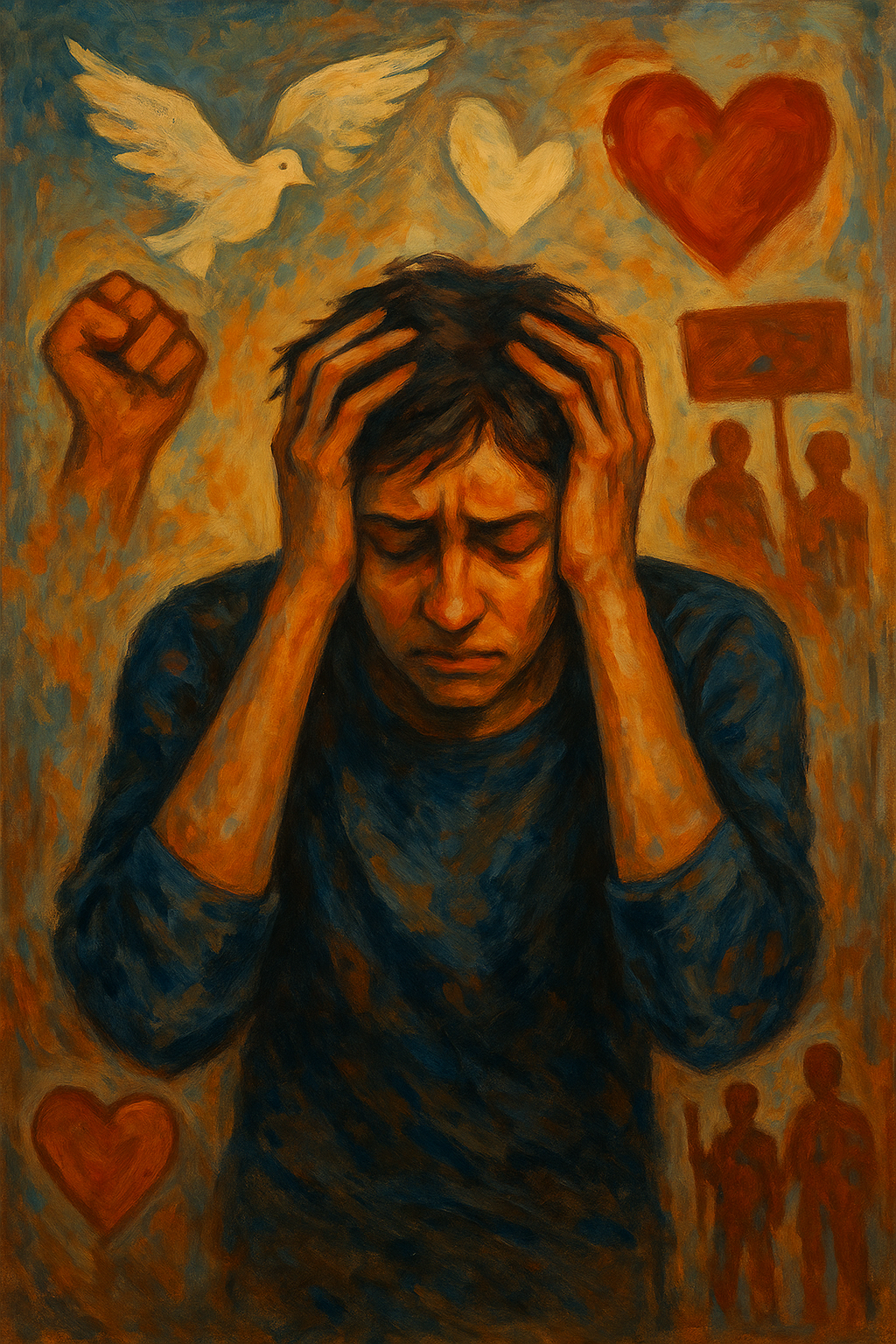Moral burnout is a growing concern, especially in today’s world where altruism and humanitarian efforts are at our fingertips. In 2025, many individuals are feeling drained from kindness as they engage extensively in volunteer work and activism. This article will explore the meaning of moral burnout, its causes, and how to overcome it.
Understanding Moral Burnout
What is Moral Burnout?
Moral burnout, often referred to as emotional exhaustion from doing good, is characterized by overwhelming fatigue and stress associated with the continuous effort to contribute positively to society. It is an emotional and psychological condition that many volunteers and activists encounter.
Signs You’re Experiencing Moral Burnout
* Constant Fatigue: You feel tired even after a good night’s sleep.
* Loss of Motivation: The desire to help has diminished.
* Cynicism: You become skeptical about the effectiveness of your efforts.
* Emotional Exhaustion: Feeling drained after engaging in altruistic activities.
Recognizing these signs is crucial for determining whether you are facing moral burnout, as they can significantly impact mental health and overall well-being.
The Causes of Moral Burnout
There are several factors that contribute to moral burnout, particularly in an era marked by increased social awareness and calls for activism. These causes include:
1. Overcommitment to Activism
In an age driven by social media, many individuals feel pressured to engage in activism fully. This commitment often leads to overextension, significantly contributing to feelings of moral burnout.
2. Lack of Support
Volunteers and activists often face significant emotional burdens. When support systems are lacking—whether from peers, organizations, or the community—this can exacerbate feelings of exhaustion.
3. Emotional Weight of the Cause
Being involved in difficult or tragic situations can lead to compassion fatigue. When every effort feels like a drop in the bucket against overwhelming problems, it can leave individuals feeling hopeless.
4. The Perception of Effectiveness
Many people become frustrated when they do not see immediate results from their altruistic actions. This limitation often leads to disillusionment and fatigue associated with moral injury in activism.
The Psychological Effects of Doing Good
Doing good can lead to a range of psychological effects, both positive and negative. While altruism can foster feelings of happiness and purpose, the pressure to constantly perform acts of kindness can instead lead to emotional exhaustion.
Mental Health and Altruism
Research shows that practicing acts of kindness can promote psychological resilience and well-being. However, when individuals regularly encounter moral dilemmas, the cognitive dissonance can lead to ethical burnout, overwhelming them with guilt and fatigue.
How to Overcome Moral Burnout
1. Recognizing Your Limits
Being aware of your personal boundaries is essential in combating moral burnout. Understand when to step back and prioritize self-care amidst your altruistic efforts.
2. Setting Realistic Goals
Avoid taking on too much. Focus on smaller, manageable contributions rather than overwhelming yourself with large projects.
3. Finding Support
Reach out to fellow activists and volunteers. Sharing experiences and challenges can lighten the emotional load and foster a sense of community.
4. Effective Self-care Practices
Engage in self-care activities that recharge you mentally and physically. Examples include yoga, meditation, or simply taking a break to enjoy hobbies you love.
5. Seeking Professional Help
In severe cases, seeking the guidance of mental health professionals can provide coping mechanisms tailored for dealing with moral burnout.
The Future of Altruism in 2025
Despite the challenges associated with moral burnout, a renewed perspective on altruism in 2025 holds promise. By fostering understanding and self-care practices, individuals can navigate the complexities of helping others effectively while maintaining their well-being.
Conclusion
Moral burnout is a legitimate challenge faced by many in the altruistic community, particularly in the hyper-connected world of 2025. By understanding the complexities of emotional exhaustion from doing good, individuals can better navigate their commitments and maintain a healthy mental state. Finding harmony between altruism and personal care is not only beneficial for the individual but for the larger community as well.
